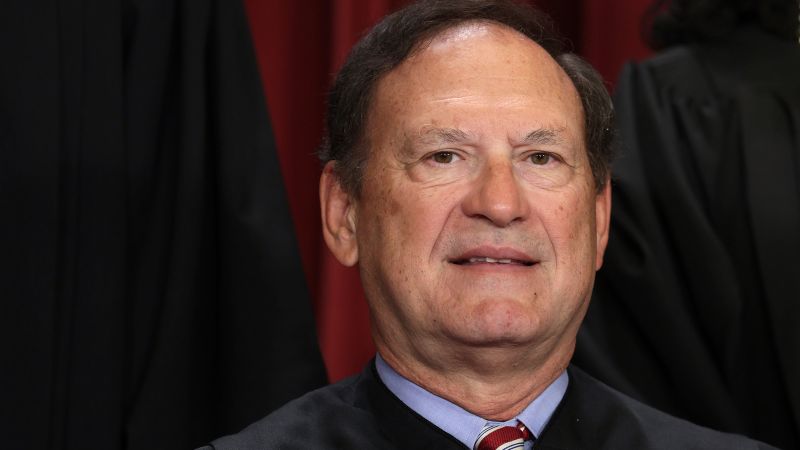The New York Times reported that an upside-down American flag was seen hanging outside the home of Supreme Court Justice Samuel Alito after the 2020 election. This symbol is associated with supporters of former President Donald Trump who challenged the legitimacy of Joe Biden’s victory. The revelation has raised questions about Alito’s impartiality in several high-profile cases pending before the court, including those related to the election and the Capitol attack.
The inverted flag was reportedly seen at Alito’s home in Virginia on January 17, 2021. Alito, a member of the court’s conservative wing, has denied any involvement in the flag’s display. His wife, Mrs. Alito, allegedly placed the flag in response to objectionable and insulting language used by a neighbor on yard signs. The use of the upside-down flag became a symbol of the “Stop the Steal” movement, which falsely claimed that Biden’s victory was due to widespread fraud.
The Times’ report has further increased scrutiny on the high court, which is already facing criticism for Justice Clarence Thomas’ connections to the Capitol attack. Thomas’s wife, Virginia “Ginni” Thomas, acknowledged attending Trump’s rally before the attack and supporting efforts to discredit the election results. Thomas has defended his actions, accusing his critics of spreading lies and being nasty. In response to revelations about Thomas and Alito’s travel, the Supreme Court adopted a code of conduct for the first time. This code instructs the justices to refrain from political activity.
It remains unclear how long the upside-down flag flew outside of Alito’s home. The use of this symbol has deep political significance and was widely seen during the January 6, 2021, attack on the US Capitol. Calls for Alito’s recusal in election-related cases are likely to increase following this revelation. The story highlights the challenges facing the Supreme Court as it navigates politically charged cases and strives to maintain public trust in its impartiality and independence.
The Supreme Court’s handling of these cases will be closely watched by the public and legal experts alike. The revelations about Alito and Thomas raise questions about the justices’ ability to remain neutral in politically sensitive matters. The adoption of a code of conduct for the justices reflects growing concerns about the court’s integrity and the need to address potential conflicts of interest. As the court grapples with these challenges, its decisions in key cases will have far-reaching implications for the rule of law and the democratic process in the United States.


